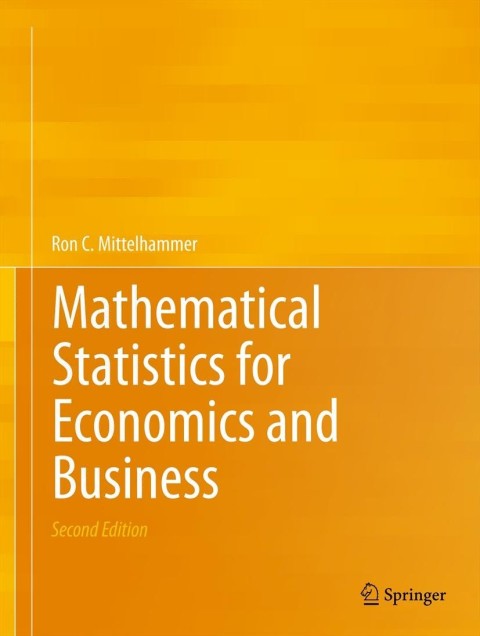Suppose random sampling is from an exponential population distribution representing the waiting time between customer arrivals at
Question:
Suppose random sampling is from an exponential population distribution representing the waiting time between customer arrivals at a bank, so that the statistical model is given by
\(f(x ; \theta)=\theta^{-n} e^{-\sum_{i=1}^{n} x_{i} / \theta} \prod_{i=1}^{n} I_{(0, \infty)}\left(x_{i}ight)\), for \(\theta>0\).
Your objective is to use an outcome of a random sample of size \(n\) (n fixed and known) to estimate \(q(\theta)=\theta^{2}\), the variance of waiting times.
a. Define a complete sufficient statistic for \(f(\mathbf{x} ; \theta)\).
b. Define the CRLB for unbiasedly estimating \(\theta^{2}\).
c. Does there exist an unbiased estimation of \(\theta^{2}\) whose variance is equal to the CRLB?
d. Define the MVUE of \(\theta^{2}\) by finding an appropriate function of the complete sufficient statistic-if you can.
e. Is the sample variance, \(S_{n}^{2}\), the MVUE for the population variance \(\theta^{2}\) ?
f. If \(\sum_{i=1}^{100} x_{i}=257\), generate a MVUE estimate of the variance of waiting times.
Step by Step Answer:

Mathematical Statistics For Economics And Business
ISBN: 9781461450221
2nd Edition
Authors: Ron C.Mittelhammer





